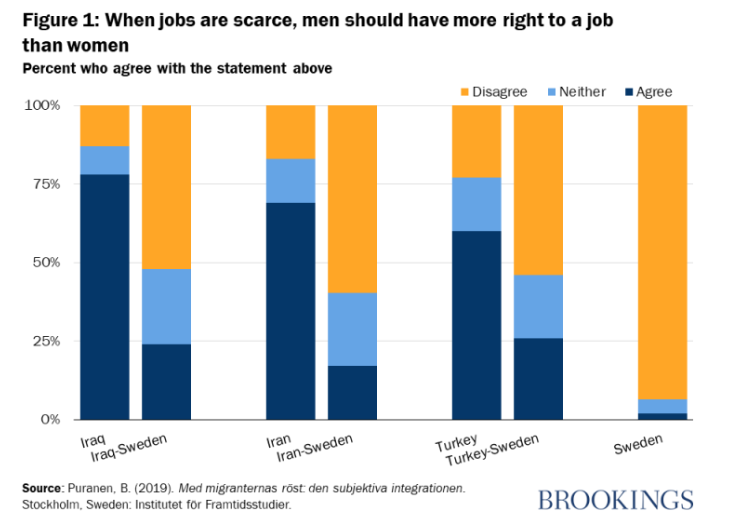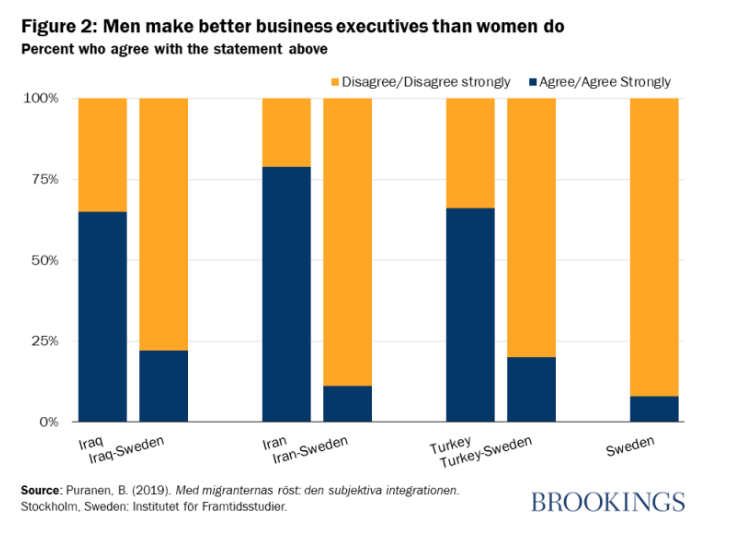Introduction into Feminist Economics
-
Overview6 Topics
-
Background information13 Topics
-
Introduction
-
Definition of feminist economics
-
Origins of feminist economics and important thought-leaders
-
Critiques: Neoclassical vs feminist paradigm
-
Principles of feminist economics
-
5 - Gender-based economic inequalities in data
-
1.The gender pay gap has decreased in the last couple of decades in most countries.
-
2. Women are often underrepresented in senior positions in firms.
-
3. Women are often overrepresented in low-paying jobs
-
4. In many countries, women are less likely to own land and control productive assets.
-
5. Women have often limited control over household resources.
-
6. Gender-equal inheritance systems are not adopted in all countries.
-
Conclusion
-
Introduction
-
Endnotes
-
References
-
Glossary
-
Interactive learningDeepen your knowledge4 Quizzes
-
Training materialExercises for group activities2 Topics
How rigid are the norms and beliefs?
Activity title | How rigid are the norms and beliefs? |
Overview | The following exercise shows participants how social norms and personal beliefs can evolve under different circumstances. It encourages the participants to discuss what factors/aspects/variables can influence social norms and personal beliefs. The exercise points out the influence of norms and beliefs on women’s position in society and the economy. Moreover, it invites the participants to discuss strategies on how social norms and beliefs can be changed to support equal participation of men and women in the economy. |
Objectives |
|
Materials |
|
Time | In total 2 hrs 1/ Introduction to the topic, instructions, division of groups (15 min.) 2/ Group work (60 min.) 3/ Reflection (45 min.) |
Group size | 6-20 participants |
Instructions for trainers
|
|
Instructions for participants |
“Some economists argue that investments into women economic empowerment do not have any long-term effect because it is very difficult to change human behaviours based on rigid social norms and personal beliefs. One research on migrant communities in Sweden (Institutet för Framtidsstudier, 2019) showed that social norms might not be that rigid. The research compared answers of migrant communities living in Sweden (Iranians, Iraqis and Turks) to dominant beliefs in their country of origin. The research used World Value Survey questions to analyze beliefs such as as gender equality, homosexuality, abortion or divorce. As an example you can see two figures showing the differences in answers of Swedes and respondents from migrant communities compared with prevailing beliefs in their countries of origin (Iran, Iraq, Turkey). The figures show interesting results.”
|
Debriefing and evaluation | Allow at least 45 min. for final debriefing and reflection. Firstly encourage the groups to share the results of their group work and discuss their arguments. After that you can also ask general questions evaluating the lessons learnt and the process. You can use the following questions:
|
Tips for trainers | Challenges that might occur: The participants might have different levels of knowledge and skills regarding the topic. Therefore, it is advisable to assess it beforehand and make sure that the groups are divided accordingly (pair more experienced with less experienced participants).
|
More on: Towards Economic Literacy: http://economic-literacy.eu Livani, Talajeh (2019). Promoting women’s economic empowerment: Mission impossible? Brookings. Available at: https://www.brookings.edu/blog/future-development/2019/10/28/promoting-womens-economic-empowerment-mission-impossible/ | |








